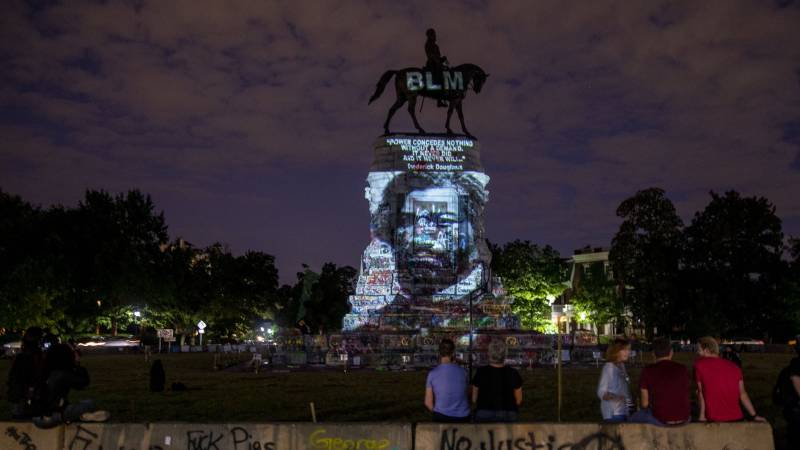In July 1852, abolitionist and scholar Frederick Douglass delivered a keynote speech which asked the question “What to the Slave is the Fourth of July?”
The answer, Douglass said, is this: “[A] day that reveals to him, more than all other days in the year, the gross injustice and cruelty to which he is the constant victim. To him, your celebration is a sham; your boasted liberty, an unholy license; your national greatness, swelling vanity; your sounds of rejoicing are empty and heartless; your denunciation of tyrants, brass fronted impudence; your shouts of liberty and equality, hollow mockery.”
On this Fourth of July weekend, amid Black Lives Matter protests and calls for sweeping criminal justice reform, KQED Forum host Ariana Proehl spoke with Casey Gerald, author of the memoir “There Will Be No Miracles Here”, about the legacy of Douglass’ speech, and what the Fourth of July means today.
This interview has been lightly edited for length and clarity.
Do you have a memory of the first time you heard about, or read that speech by Frederick Douglass?
The first time I saw it, I was in college at Yale. I was a senior, and at the Beinecke rare manuscript library is a first printing of “What to the Slave is the Fourth of July”. And it was really holy for me and I, kind of, pocketed that memory.
I think of the position that [Douglass] stands in while he’s given that speech. These people, I’m assuming, invite him thinking, “wow, how incredible that this formerly enslaved person is able to be so eloquent, and shouldn’t we feel good about ourselves, about inviting him here?” And he turns it on its head.
I similarly thought about my role with writing “There Will Be No Miracles Here”. I had accomplished, by my late 20s, about everything a kid is supposed to achieve in a society. I had gone from this poor, Black, queer, damn-near orphan in the forgotten world of Texas, and gone off to Yale and Harvard Business School and done all these things. But I was really cracked up.
So, I set out with this book to trace those cracks. And, in so doing, to trace this stuff that I had seen of America from the very bottom to the very top. It wasn’t so much an indictment of the American dream, but a document that showed the bankruptcy of the American machine in our time. This American machine that leads so many people from nothing to nowhere while picking off the chosen few, like me.
I think what Douglass is doing … it’s almost like he calls us to this Declaration of Independence, calls us to the Constitution as the instruction manuals of the machine. And he doesn’t indict the instruction manual. He indicts the people who’ve so perverted the instruction manual.

